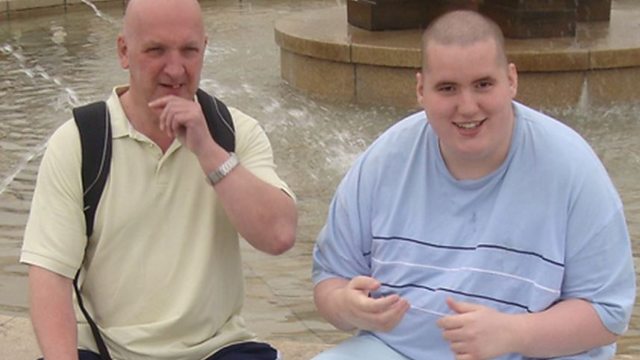We need to listen to Mark Neary’s interview. He talks about many of the fears of many parents and families who’ve struggled to get their family member a life using Direct Payments http://www.bbc.co.uk/programmes/p059bjrf
For all of us the loss of close family members is a great upheaval and loss, but if they have also been managing your care support and standing up for your rights under Care Act and Human Rights laws – in Stephen Neary’s case his dad had to fight for these through the courts too – then imagine how much worse this would be.
Not only have you lost your closest family member and are bereaved, but your whole security could be shaken, and it could even result in you losing your long-term support team and home. In Stephen’s case he lost his home and dad for a year because his dad needed a few days respite due to having severe flu’….
We know from other families on the 7DayAction group that too often asking for help can result in losing their child – too often to Assessment and Treatment Units miles away when they are not psychiatrically ill! This seems to be a ‘disposal’ of a nuisance problem – far from the bespoke solution needed to alleviate someone’s distress.
Unfortunately, there are not Noelle Blackmans* standing by everywhere to give the kind of emotional support which is needed or mobilise appropriate help, nor do we still have well-equipped and skilled community teams able to step in with support to buy the time needed to work out solutions.
We could hope such skilled and preventive services are being re-built with the Transformation plans following the Winterbourne View and other scandals – let alone the preventable deaths we’ve seen in units – such as Connor Sparrowhawk (#JusticeforLB) – but we’ve seen little evidence of this.
There are still some very skilled charity providers working with people in a close way with services listening hard to people and working with families BUT they can’t suddenly produce a bespoke service.
So what will happen if we don’t do something?
We know this kind of loss is likely to seriously upset and disturb an adult with learning disabilities and autism – this would be normal. Indeed it’s normal for all of us who’ll have different reactions though we do have the means to articulate our emotions and reach out to friends and others. However even then we won’t always deal well with such close losses.
Because the person will not have the same tools often, they will most probably express their upset in previously negative behaviours and so risk the application of the “challenging behaviour” label, rather than understanding this as reasonable and looking to find those people closest and most likely to be able to communicate and help.
We know statutory authorities have learned behaviours of helplessness and can too often reach out for institutional solutions which remove the “problem” from them. So without a serious plan, we risk an appalling escalation of changes that will inevitably ignore the actual problem and pile on damage – and without that relative, risk losing their whole life and the people left who know them and care..
What we need is for everyone’s Care Act assessment to have agreed contingency plans in case of temporary dislocations and a longer-term plan for when the person’s key relative managing their support can no longer do this.
How many plans have a management/full brokerage fee built into their package for this reason? Without this though, not only do we risk appalling chaos for the person but we risk actually escalating costs for the Authority – which at the moment might well pass from the Local authority to the NHS!! Perhaps if the NHS could see the advantages to their purse they might, but to date their local provision has been taking these away for other more immediate pressures.
It is well over-due that someone starts to address this issue which does not encourage LAs to plan well if they lose the costs…. all apart from the need for NHS re-investment in community specialist supports, instead of moving them into “units”.
*Respond






